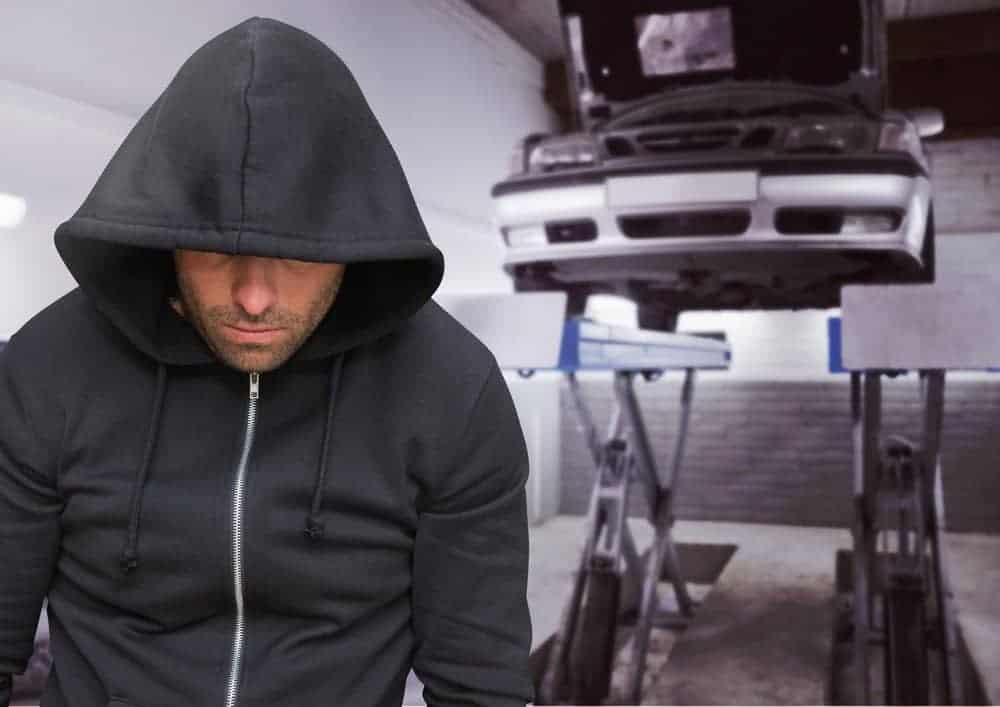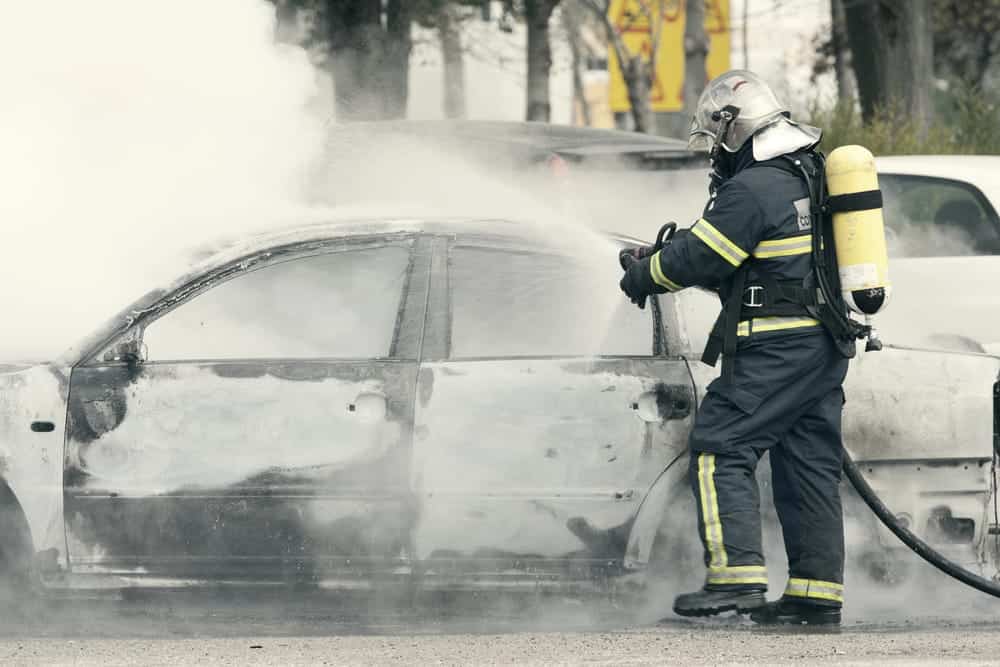When individuals encounter issues with a mechanic shop’s repairs or services, they often wonder which type of lawyer to consult for legal assistance. Instances of poor workmanship, vehicle damage, or misrepresentation by the mechanic shop may require a specialized attorney’s expertise. Although navigating the legal world can be daunting, understanding the specific area of law required for these disputes can significantly increase the chances of a favorable outcome.
Consumers should contact lawyers specializing in consumer protection or automotive disputes. These attorneys possess the necessary expertise to handle mechanic shop cases and are well-versed in the various possible claims. By focusing on this area of law, they are familiar with the intricacies of the cases, the evidence required to support a claim, and the possible defenses that may arise.
Given the potential complexity of automotive repair disputes, consumers must have the right legal representation. Engaging a lawyer with expertise in the relevant area of law can provide individuals with the necessary guidance and support to navigate such disputes effectively.
Identifying the Need for Legal Action
Breach of Warranty
If a mechanic shop fails to honor a written or implied warranty related to auto repairs, it constitutes a breach of warranty. This can occur if the mechanic fails to perform the repairs properly or if the parts used are substandard. In such cases, the customer may have grounds to take legal action against the mechanic shop.
Fraud
Fraud occurs when a mechanic shop intentionally misrepresents the condition of a vehicle or the necessity of repairs. Dishonest mechanics may perform unnecessary repairs, charge for incomplete work, or use substandard parts. Legal action may be necessary to recover damages resulting from fraudulent activities.
Negligence
A mechanic’s negligence could damage your vehicle or cause personal injury. If a mechanic performs faulty repairs or fails to follow proper safety protocols, they may be liable for damages or injuries. Legal action may be required to hold the mechanic accountable for their negligence.
Property Damage
If a mechanic shop causes damage to a customer’s vehicle while it is in their care, they may be held responsible for the cost of repairing the damages. This can include anything from minor cosmetic damage to substantial mechanical issues. Legal action may be necessary to seek compensation for property damage.
Injury
If a customer suffers an injury due to a mechanic’s negligence, they may have grounds to sue the mechanic shop. This can include injuries sustained while on the shop’s premises or due to faulty repairs leading to an accident.
Consumer Protection Laws
Various consumer protection laws exist to protect customers from unfair business practices by mechanic shops. These laws cover misleading advertising, incomplete or substandard repairs, and excessive charges. Legal action may be necessary to enforce these laws and seek compensation for damages suffered by the customer.
False Estimate
A mechanic shop may provide a customer with an inaccurate estimate for the cost of repairs. If the actual cost of repairs is significantly higher than the estimate, the customer might have grounds to sue the mechanic shop.
Invalid Mechanic’s Liens
A mechanic’s lien allows a mechanic shop to hold a customer’s vehicle until they have been paid for their services. However, if a mechanic attempts to enforce an invalid lien, the customer may need to take legal action to recover their vehicle.
In conclusion, several factors can warrant legal action against a mechanic shop, including breach of warranty, fraud, negligence, property damage, injury, violations of consumer protection laws, false estimates, and invalid mechanic liens. Consulting with an attorney specializing in auto repair disputes is essential to determine the most appropriate course of action.

Choosing the Right Lawyer to Sue a Mechanic Shop
When an individual must sue a mechanic shop, finding the appropriate lawyer to handle the case is crucial. This section will discuss two types of lawyers who can assist in such situations: Automotive Lawyers and Consumer Protection Attorneys.
Automotive Lawyers
Automotive lawyers are legal professionals who specialize in cases involving vehicles, repairs, and maintenance. They have extensive knowledge about the automotive industry and often have connections with experts who can help build a solid case.
When choosing an automotive lawyer, one should consider:
- Experience: The lawyer should have a track record of successfully handling cases similar to the client’s situation.
- Knowledge: The lawyer should know the specific laws and regulations about mechanic shops and automotive repairs.
- Location: It is preferable to hire a lawyer who practices in the mechanic shop’s jurisdiction, as they will be familiar with local laws and court procedures.
Consumer Protection Attorneys
Consumer protection attorneys focus on defending the rights of consumers who businesses or service providers have wronged. They can be valuable advocates in cases where a mechanic shop has deceived, defrauded, or caused harm to a client.
Key factors to consider when selecting a consumer protection attorney include:
- Experience: As with automotive lawyers, it’s important to choose a consumer protection attorney who has handled similar cases and achieved positive outcomes for their clients.
- Reputation: Look for an attorney with a strong reputation for advocating for consumers and holding businesses accountable.
- Resourcefulness: A good consumer protection attorney should be resourceful in gathering evidence, researching relevant laws, and building a strong case against the mechanic shop.
In conclusion, when using a mechanic shop, selecting an automotive lawyer or a consumer protection attorney with the right experience, knowledge, and skills to handle the case effectively is essential. The client increases their chances of success in their legal battle against the mechanic shop.
Taking Legal Action
Small Claims Court
Small claims court is a venue to consider when seeking legal action against a mechanic shop. This court typically handles cases involving smaller monetary amounts, allowing individuals to represent themselves without a lawyer. The specifics of small claims court vary by jurisdiction, including the maximum amount that can be claimed.
- Eligibility: Check if the dispute with the mechanic falls within the jurisdictional limits of a small claims court.
- Filing: Complete the required paperwork and pay a small fee to file the claim.
- Presenting Evidence: Gather all necessary evidence, such as contracts, receipts, and photos, to present in court.
Civil Court
For larger claims, civil court may be the preferred option. In this case, hiring a lawyer with experience in automotive litigation is important to navigate the legal process.
- Finding a Lawyer: Research local lawyers who specialize in automotive disputes and have a proven track record in handling similar cases.
- Filing a Complaint: The lawyer will help draft and file a complaint with the appropriate court.
- Discovery Process: The discovery process involves collecting evidence, interviewing witnesses, and gathering information from the mechanic shop.
Demand Letter
Before initiating legal action, sending a demand letter to the mechanic shop can effectively resolve the dispute. The demand letter should include the following:
- A clear description of the issue
- Any evidence of the mechanic’s fault, such as receipts or proof of damages
- The desired resolution, such as a refund, repairs, or compensation
- A deadline for the mechanic to respond
A lawyer can help draft a demand letter, increasing the likelihood of a successful outcome. If the demand letter does not prompt a satisfactory resolution, proceeding with small claims or civil court may be necessary. By considering the various legal avenues, individuals can increase their chances of obtaining a fair outcome in their dispute with a mechanic shop.
Mechanic Liability Insurance
Mechanic liability insurance is a type of coverage that protects automotive repair shops and technicians from financial loss in the event of a lawsuit. This insurance is crucial for those working in the automotive repair industry. It provides financial protection if a customer claims that the mechanic shop caused damage to their vehicle or failed to repair it properly.
There are different types of mechanic liability insurance policies available:
- General liability insurance covers common risks such as bodily injury and property damage. This policy may protect you in cases where a customer is injured at your shop or their vehicle is damaged while in your care.
- Garagekeepers liability insurance specifically covers damages to customers’ vehicles while serviced or stored at your shop. This may include damages resulting from theft, collision, weather damage, or vandalism.
When determining the appropriate coverage for your automotive repair shop, assessing your business’s specific risks is essential. For example, a repair shop specializing in high-end vehicles may require higher insurance limits, as the cost of repairing these vehicles can be substantial.
Additionally, many automotive repair businesses may also benefit from other types of insurance coverage, such as:
- Workers’ compensation insurance to protect employees who suffer injuries or illnesses while on the job
- Commercial property insurance to cover damages to your shop’s building and equipment
- Business interruption insurance to help replace lost income if your shop is forced to close temporarily due to a covered event
Working with an experienced insurance agent or broker is essential to ensure your mechanic shop has adequate coverage. They can help you assess your risks, find a policy that meets your needs, and ensure you get the best possible rates. Protecting your automotive repair business with the right insurance coverage ensures its long-term success.
Dealing with Specific Circumstances
Lemon Law
Lemon laws can be beneficial when dealing with a faulty vehicle repair. These laws protect consumers who have purchased or leased vehicles with recurring problems that a mechanic hasn’t addressed despite multiple attempts. You may need a lawyer specializing in lemon law litigation in these cases. They will work to ensure that you receive appropriate compensation, which may include a refund or a replacement vehicle.
Right to Repair Act
When focusing on the Right to Repair Act, an attorney must understand consumer protection laws. This legislation protects vehicle owners by ensuring they can choose who repairs their vehicles, preventing manufacturers from monopolizing repairs. If a mechanic shop has violated the principles of this act, your lawyer can help you enforce your rights and seek compensation for any harm caused.
Foreclosure of Lien
If a mechanic has enforced a lien on your vehicle due to a dispute over payment for repairs or services, you may require a lawyer specializing in property liens. In these cases, the lawyer will work to prove whether the lien is valid or not, representing your interests throughout the process. They can also help negotiate a suitable resolution, such as a payment plan or lien removal if the lien is unjust.
Donotpay
Donotpay provides AI legal assistance in dealing with mechanic disputes without hiring a lawyer. This platform can assist with drafting demand letters and other important legal documents and guiding how to navigate the process. Before using this service, ensure you understand the potential limitations of GPT and compare them to the benefits of consulting with an experienced attorney.
By understanding the different circumstances and legalities involved, you can make an informed decision about which type of lawyer to consult when dealing with disputes regarding mechanic shops.
Filing a Complaint
When considering legal action against a mechanic shop, it is crucial to understand the process of filing a complaint. A well-structured complaint can efficiently convey the plaintiff’s concerns and provide evidence.
The first step in filing a complaint is to gather all relevant documentation. This may include receipts, work orders, and communication with the mechanic shop. Having a clear timeline of events is important, with any instances where the mechanic shop failed to meet industry standards.
Industry standards play a significant role in determining if the mechanic shop’s work was subpar or negligent. Familiarizing oneself with these standards can help support the allegations in the complaint. Some sources of industry standards include professional organizations, licensing boards, and trade publications.
Next, outline the specific grievances in the complaint. These grievances should be concise and directly related to the mechanic shop’s failure to meet industry standards or any damages incurred due to their work. Examples of such grievances may include:
- Incomplete or incorrect repairs
- Installed parts that don’t meet industry standards
- Overcharging or billing for unauthorized work
After outlining the grievances, it’s essential to identify the desired outcome or remedy. This could involve:
- Monetary compensation for damages or inconveniences
- The mechanic shop completes the necessary repairs at no additional cost
- A full or partial refund for the work performed
Finally, consult an attorney specializing in consumer law, automotive disputes, or general civil litigation to review the complaint and determine the best legal action. A qualified attorney can help navigate the intricacies of the legal system and provide guidance on pursuing the case.
In summary, filing a complaint against a mechanic shop involves gathering documentation, understanding industry standards, outlining specific grievances, determining the desired outcome, and consulting with an attorney. Following these steps, the plaintiff can present a well-structured complaint that increases their chances of a favorable outcome in their dispute with the mechanic shop.
State-Specific Auto Repair Laws
Automobile Mechanic Laws
Auto repair laws are mostly regulated under state law. This legislation ensures that auto repair shops and mechanics conduct business fairly and transparently. A few key aspects of the acts include:
- Written Estimate Requirement: mechanics must provide customers a written cost estimate before performing any repair work. This estimate should include both the cost of labor and parts. In addition, any potential diagnostic fees should be disclosed upfront.
- Authorization from Customers: mechanics are not allowed to charge for repairs unless they have received explicit authorization from customers. Consent can be given in person, over the telephone, or in writing.
- Final Invoice: upon completion of the repairs, customers must be provided with a finalized invoice that details the services rendered, labor and parts costs, and any warranties offered, alongside the initial written estimate. This document records the transaction and lets customers compare the final cost with the initial estimate.
- Customer Right to Inspect Replaced Parts: customers have the right to inspect the replaced parts upon request unless it is necessary to return the replaced part to the manufacturer, distributor, or dealer for warranty purposes.
To pursue legal action against an automobile mechanic or repair shop, consulting with a consumer protection attorney specializing in auto repair laws may be helpful. These legal professionals have experience navigating state-specific legislation. They can help clients understand their rights and seek compensation for any damages caused by negligence or misconduct on the part of the mechanic or repair shop.
Other Professionals with Legal Responsibility
Plumbers
Plumbers are responsible for ensuring the proper installation and maintenance of plumbing systems in residential and commercial buildings. They are licensed professionals who must adhere to strict standards and regulations. If a plumber’s work results in damage, injury, or financial loss, they can be liable for their negligence or errors. In such cases, individuals can seek the assistance of a lawyer specializing in personal injury or construction law to represent them in pursuing compensation.
Painters
Painters must follow industry best practices and guidelines to ensure the quality and safety of their work. If a painter’s work results in damage or injury, they, too, can be held responsible for their actions. Those affected by a painter’s negligence or improper conduct can also consult with a personal injury or construction law attorney to determine the best course of action.
Carpenters
Carpenters are responsible for constructing, repairing, and installing various wooden structures and components in residential or commercial buildings. A carpenter’s poor craftsmanship, use of subpar materials, or failure to meet building codes could result in significant property damage or injury. In these situations, seeking the help of a construction law or personal injury lawyer can ensure appropriate legal action is taken against the carpenter.
Construction Contractors
Construction contractors oversee and manage all aspects of a construction project, including hiring subcontractors, ensuring compliance with building codes, and maintaining safety standards. If construction contractor fails to meet their duties, they can be held legally accountable for resulting damages or injuries. A lawyer with experience in construction law and personal injury would be suitable for seeking compensation in such cases.
Subcontractors
Contractors hire subcontractors to perform specialized work on construction projects, such as electrical or plumbing installations. Like other professionals, subcontractors must adhere to industry standards, building codes, and safety regulations. They can be liable for their negligence if their work results in property damage or injury. Those affected can consult with a lawyer to help them navigate the legal process and ensure fair compensation is pursued.

Common Repair Issues and Misdiagnosis
Used or Rebuilt Parts
Sometimes, mechanics may use used or rebuilt parts when repairing a vehicle. While this practice is not inherently wrong, it can be problematic if the mechanic does not inform the customer that they are using such parts. Reputable mechanics should always provide a transparent estimate, including the type of parts used, before undertaking any repairs.
Detailed Estimate
Vehicle owners need to obtain a detailed estimate before agreeing to any repairs. A detailed estimate should include a breakdown of the costs of parts and labor and the type of parts used (new, used, or rebuilt). This transparency lets customers make informed decisions about vehicle repairs and avoid potential misunderstandings or disputes with the repair shop.
Misdiagnosis
Misdiagnosing a vehicle’s problem is common in the automotive repair industry. An incorrect diagnosis can lead to unnecessary repairs, wasted time, and further costs for the vehicle owner. Vehicle owners should seek a second opinion if they have concerns about the initial assessment given by a mechanic. Taking this step can help prevent potential legal issues down the line.
Faulty Diagnosis
There are instances where a faulty diagnosis stems from a mechanic’s negligence or lack of technical knowledge. The mechanic might overlook critical symptoms or follow proper diagnostic procedures. A faulty diagnosis can adversely affect the vehicle owner, potentially leading to additional expenses and damage.
Mistaken Repair
A mistaken repair can result from a misdiagnosis or simply from a mechanic’s error. In either case, a vehicle owner might have an unresolved issue or even new problems caused by incorrect repair work. Mistaken repairs lead to frustration for the owner and can create potential safety hazards.
When dealing with repair issues and misdiagnosis, vehicle owners should exercise due diligence by seeking detailed estimates, understanding whether new, used, or rebuilt parts are being used, and considering seeking a second opinion if the diagnosis appears suspicious. This approach can help maintain a positive relationship with the repair shop, minimize legal disputes, and ensure that their vehicles receive appropriate and effective repairs.
Car Manufacturers
When considering legal action against a mechanic shop, it is important to understand the potential involvement of car manufacturers. In some cases, car manufacturers may be held partially or fully responsible for issues stemming from repairs or maintenance work.
A car manufacturer could be implicated if they provided faulty or unsafe parts to the mechanic shop. If a mechanic installs a defective part in a vehicle, the manufacturer could be liable for any damages or injuries resulting from that faulty part. Additionally, if a manufacturer fails to issue a necessary recall for a known defect or safety issue, they may be liable in certain cases.
On the other hand, car manufacturers may have protocols and guidelines for how mechanics should handle their products. If a mechanic fails to follow these guidelines, they may be held solely responsible for any issues. For example, if a mechanic improperly installs a part that should have been installed per the manufacturer’s recommendations, the mechanic shop could be at fault.
Furthermore, if a mechanic shop is a manufacturer-authorized dealer or service center, the manufacturer may have an obligation to ensure the quality of the work performed at that shop. The manufacturer could be held responsible for improper repairs or maintenance in these cases.
To navigate the complex landscape of legal responsibility when suing a mechanic shop, consulting with an attorney specializing in automotive-related issues is crucial. They will be able to determine whether a car manufacturer may be involved and can advise on the best course of action to take in each case.
Frequently Asked Questions

What type of lawyer should I hire to sue a mechanic shop?
To sue a mechanic shop, consult a consumer protection attorney or a civil litigation attorney. These legal experts have experience in dealing with cases involving faulty repair work, breaches of warranty, and other consumer-related issues.
Can I sue a mechanic shop for faulty repair work?
Yes, you can sue a mechanic shop for faulty repair work if you prove that the mechanic was negligent or failed to meet the required standard of care. Examples could include improper parts installation, using defective parts, or not completing the repair work as promised.
What evidence do I need to support my case?
- Receipts and invoices for the repair work
- Before and after photos or videos of the damaged vehicle
- Statements from expert witnesses (e.g., another mechanic) to attest to the faultiness of the repair work
- Documentation of any communication between you and the mechanic shop
What compensation can I expect to receive if I win the case?
The compensation you may receive from a successful lawsuit against a mechanic shop can include:
- Refund for the cost of the repair work
- Compensation for any additional repair work required to fix the initial issue
- Reimbursement for any other financial losses incurred (e.g., lost wages or rental car expenses)
- Non-economic damages, such as emotional distress or pain and suffering (in some cases)
Remember that the specific compensation in each case will vary based on the circumstances and the severity of the damages caused by the mechanic shop.



